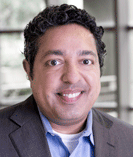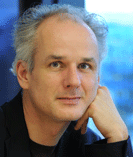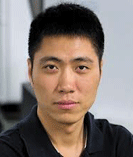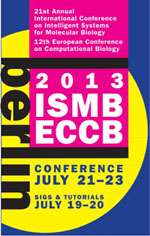Program
Friday, 19 July 2013 – room 43
07:30 - 09:00
09:00 - 09:15
09:15 - 10:15
10:15 - 10:45
10:45 - 11:10
11:10 - 11:50
11:50 – 12:30
12:30 - 13:30
13:30 - 14:10
14:10 - 14:50
14:50 - 15:30
15:30 - 16:00
16:00 - 16:40
16:40 - 17:00
17:00 - 17:20
19:00
Registration
Welcome
Keynote: Atul Butte. Translating a trillion points of data into therapies, diagnostics, and new insights into disease
Morning break
Djork-Arné Clevert. Setting the context – contest data set I
Martin Otava. Prediction of Gene Expression in Human Using Rat in Vivo Gene Expression in Japanese Toxicogenomics Project PDF
Hector A. Rueda-Zarate. A gene expression landscape of drug-induced liver hepatotoxicity PDF
Lunch break
Ashley Bonner. Detecting networks of gene expressions associated with human drug induced liver (DILI) concern using sparse principal components PDF
Tommi Suvitaival. Cross-organism prediction of drug hepatotoxicity by sparse group factor analysis PDF
Marinka Zitnik. Matrix Factorization-Based Data Fusion for Drug-Induced Liver Injury Prediction PDF
Afternoon break
Patricia Sebastián-Leon. Using probabilistic models of signaling pathways to predict in vivo drug activity PDF
Susmita Datta. Similarity in Network Structures for in vivo and in vitro Data from the Japanese Toxicogenomics Project PDF
Jose Luiz Rybarczyk-Filho. TRANSTAGING: Transcriptogram-based staging of cancer PDF
Conference dinner
Saturday, 20 July 2013 – room 43
09:00 - 10:00
10:00 - 10:30
10:30 - 11:10
11:10 - 11:50
11:50 – 12:30
12:30 - 13:40
13:40 - 14:20
14:20 - 14:50
14:50 - 15:30
15:30 - 16:00
16:00 - 16:20
16:20 - 16:40
16:40 - 17:10
17:10 - 17:30
Keynote: Nikolaus Rajewsky. Circular RNAs and other surprises from analysis of RNA:protein interactions
Morning break
Wei Zhang. Assessing Genomic Biomarkers of Toxicity in Drug Development PDF
Naiyang Guan. Reasonably integrating data for predicting drug toxicity by machine learning PDF
Jari Björne. Analyzing the Japanese Toxicogenomics Project Dataset with SVM and RLS Classifiers PDF
Lunch break
Danyel Jennen. DILI classification model based on in vitro human transcriptomics and in vivo rat clinical chemistry data PDF
Sepp Hochreiter. Setting the context – contest data set II
Huixiao Hong. Assessing single-nucleotide polymorphism and genotype calling using the KPGP-38 Human Genomes next-generation sequencing data from CAMDA PDF
Afternoon break
Mathew Palakal. Characterization of the Korean Genome PDF
Abhishek Kumar. Application of next-generation genome and transcriptome based methods for the exploration of secondary metabolites from marine fungi for the treatment of cancer PDF
Short break: vote for best presentations
Closing address and CAMDA contest awards
The scientific program will include keynotes by leading researchers in the field and selected presentations of contest dataset analyses.
The two-day meeting will also feature a poster session and opportunities for informal discussions during a social dinner.
The conference will close on Saturday in time for delegates to join to the evening reception of ISMB ECCB.
Sign up to our low-volume CAMDA 2013 announcements mailing list!
Keynotes
As in past years, contest presentations are complemented by high profile keynotes. This year, we are delighted to welcome Atul Butte, Nikolaus Rajewsky, and Jun Wang.
Atul Butte, MD, PhD
Presentation Title: Translating a trillion points of data into therapies, diagnostics, and new insights into disease
Abstract: There is an urgent need to translate genome-era discoveries into clinical utility, but the difficulties in making bench-to-bedside translations have been well described. The nascent field of translational bioinformatics may help. Dr. Butte’s lab at Stanford builds and applies tools that convert more than a trillion points of molecular, clinical, and epidemiological data – measured by researchers and clinicians over the past decade – into diagnostics, therapeutics, and new insights into disease. Dr. Butte, a bioinformatician and pediatric endocrinologist, will highlight his lab’s work on using publicly-available molecular measurements to find new uses for drugs including drug repositioning for inflammatory bowel disease, discovering new treatable inflammatory mechanisms of disease in type 2 diabetes, and the evaluation of patients presenting with whole genomes sequenced.
Short Bio: Atul Butte, MD, PhD is Chief of the Division of Systems Medicine and Associate Professor of Pediatrics, Medicine, and by courtesy, Computer Science, at Stanford University and Lucile Packard Children's Hospital. Dr. Butte trained in Computer Science at Brown University, worked as a software engineer at Apple and Microsoft, received his MD at Brown University, trained in Pediatrics and Pediatric Endocrinology at Children's Hospital Boston, then received his PhD in Health Sciences and Technology from Harvard Medical School and MIT. Dr. Butte is also a founder of Personalis, providing clinical interpretation of whole genome sequences, and NuMedii, finding new uses for drugs. Dr. Butte has authored more than 120 publications on personalized and systems medicine, biomedical informatics, and molecular diabetes. Dr. Butte's research has been featured in the New York Times Science Times and the International Herald Tribune (2008), Wall Street Journal (2010 -2012), and San Jose Mercury News (2010).
Nikolaus Rajewsky, PhD
Presentation Title: Circular RNAs and other surprises from analysis of RNA:protein interactions
Short Bio: In 1997, Nikolaus Rajewsky received his PhD in theoretical physics at the University of Cologne. After working in Joel Lebowitz's lab at Rutgers University on statistical mechanics, he joined Eric Siggia's group at Rockefeller University where, in 1999, his attention turned to biological problems. He began work on transcriptional gene regulation in E. coli and later on in metazoans. In 2003 he became an Assistant Professor of Biology and Mathematics in the Biology Department at New York University, co-associated with the Courant Institute for Mathematical Sciences, where his work on small RNAs – in particular microRNAs – began. In 2006 he became a full professor of Systems Biology at the Max-Delbrück-Center for Molecular Medicine in Berlin, associated with the Charité - Universitätsmedizin Berlin. He conceived and directs the Berlin Institute for Systems Biology. In 2008, he received the IUBMB medal for outstanding contributions to Biochemistry and the anniversary prize of the German Society for Biochemistry, awarded by FEBS. Dr. Rajewsky is also 'Global Distinguished Professor of Biology' at New York University. In January 2010, he received the Science Award of the Governing Mayor of Berlin and recently he has been honored with Germany’s most important research award, the Gottfried Wilhelm Leibniz Prize.
We regret that, Jun Wang will not be giving his keynote, but urgent matters prevent him from attending the conference.
Jun Wang, PhD
Short Bio: Jun Wang is the Executive Director of the BGI (previously known as the Beijing Genomics Institute). He was instrumental in the 1999 founding and the growth of the BGI Bioinformatics Department, which is now widely recognized as one of world’s premier research facilities committed to excellence in genome sciences. Dr. Wang also holds a position as an Ole Rømer professor at the University of Copenhagen. He has authored 200+ peer-reviewed original papers – of which 73 are published in Cell, Nature (including Nature series), N Engl J Med., and Science (23 as cover story). Among those 73, Jun Wang is the first/co-first author or corresponding/co-corresponding author for 48 (13 as cover) of them. He has been recognized with an award from His Royal Highness Prince Foundation in Denmark, Nature’s 10 - the year in Science (2012); an Outstanding Science and Technology Achievement from the Chinese Academy of Sciences, Top 10 Scientific Achievements in China, and the prize for Important Innovation and Contribution from the Chinese Academy of Sciences. His research focuses on genomics and related bioinformatics analysis of complex diseases and agricultural crops, with the goal of developing applications using the genomic information.
Recent keynote speakers include Benjamin Blencowe (Toronto), Sandrine Dudoit (Berkeley), Mark Gerstein (Yale), Jelle Goeman (Leiden Univ. Medical Centre), Martin Morgan (Hutchinson Cancer Research Center), Wei Pan (Minnesota), John Quackenbush (Dana Farber Cancer Institute, Harvard Medical School), Eran Segal (Weizmann Institute), Terry Speed (WEHI), John Storey (Princeton), Weida Tong (NCTR/FDA), Olga Troyanskaya (Princeton), and Ernst Wit (Groningen).
Further keynotes titles will be announced soon. Subscribe to the low-volume CAMDA announcements mailing list to be the first to know!
We look forward to seeing you!












STAY CONNECTED
Tweet